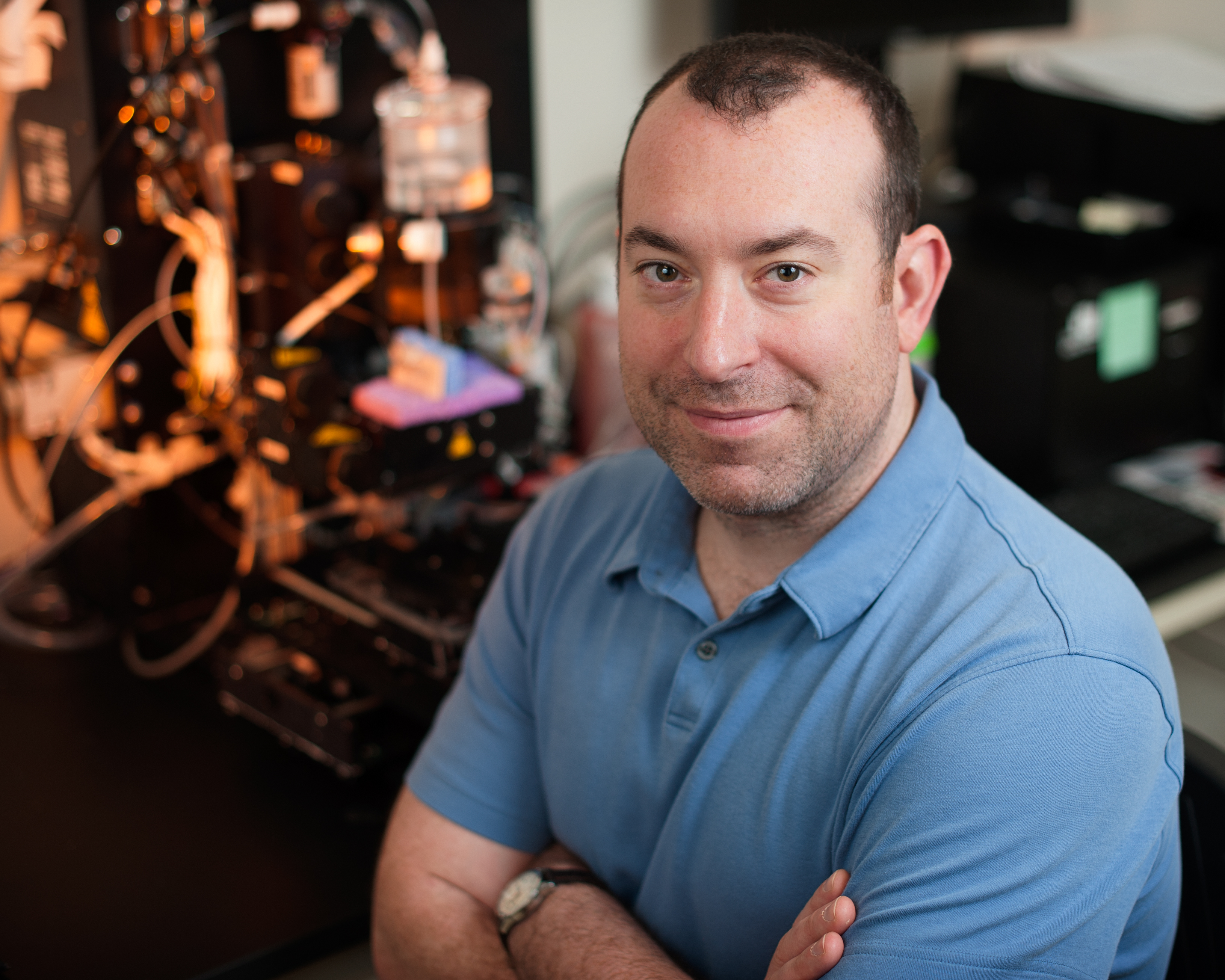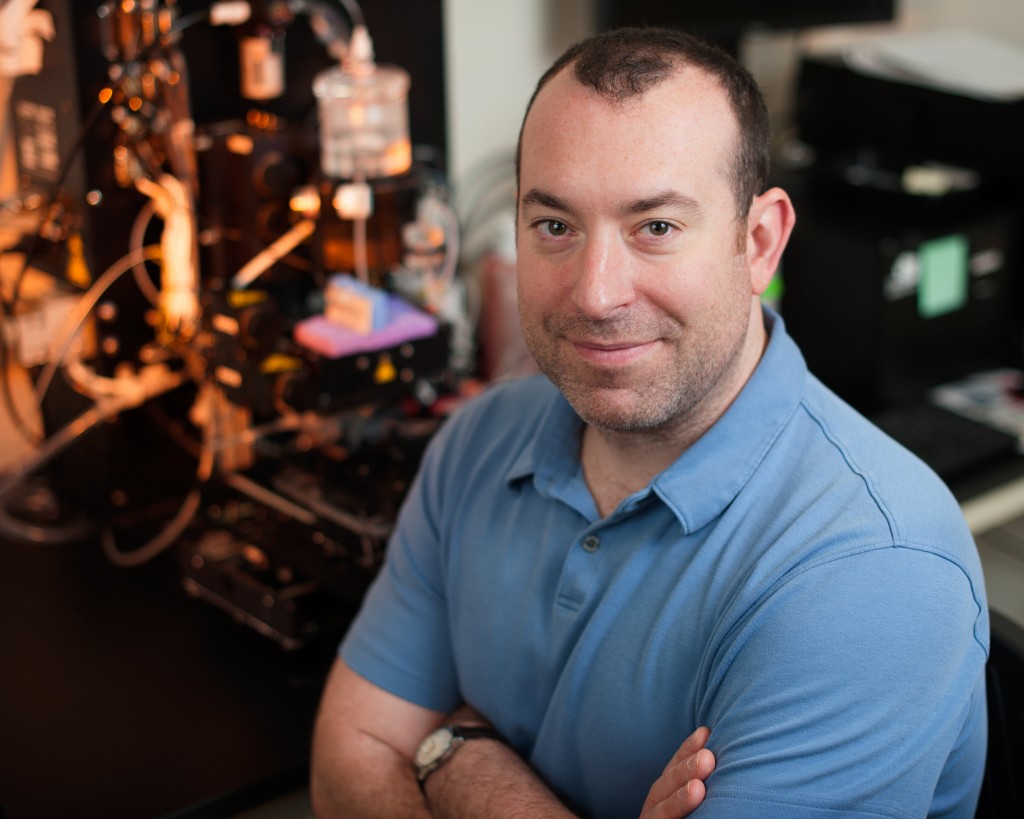New Faculty Profiles showcase GSA members who are establishing their first independent labs. If you’d like to be considered for a profile, please complete this form on the GSA website.

Erik Andersen
Assistant Professor of Molecular Biosciences (Since 2013)
Northwestern University
Lab website
Personal Twitter: @ecandersen
Research program:
My lab has broad interests in how the variation that exists in natural populations influences the phenotypes of organisms. We utilize computational and statistical methods along with molecular and classical genetic tools to accomplish this goal. We have four main projects in our group: (1) understanding the molecular mechanisms for why individuals in populations differ in responses to drugs, including chemotherapeutic and anthelmintic compounds, (2) characterization of genomes and genome evolution across our species-wide and genome-wide data set, (3) elucidation of the importance of and the factors that contribute to gene-by-environment interactions, and (4) identification of genetic modifiers of conserved cell-signaling pathways.
I am looking for graduate students and postdocs interested in applying the power of C. elegans genetics and genomics to new and fun directions. Graduate students should apply through Northwestern’s Interdisciplinary Biological Sciences program. Post-doctoral researchers should contact me directly and send a CV and short description of your interests.
Role of GSA in your career:
The first meeting of my scientific career was a GSA-sponsored International C. elegans meeting in 2001. Since that time, this biennial meeting is the “rock” of my scientific career providing education and inspiration. Also, the GSA plays a crucial role training future geneticists by providing excellent educational resources and funding for students to attend meetings. Lastly and importantly, I am grateful for GSA’s advocacy to educate and inform our elected representatives and funding organizations about the power of genetics in basic science discovery.
“C. elegans! The discoveries facilitated by this little animal humble and inspire me. I love that I never know where a screen or mapping will take me. Every day is filled with new adventures that challenge my assumptions and knowledge-base. My research group uses techniques from molecular genetics to computational biology – this diversity makes life fun and offers fantastic training opportunities. All of it has been facilitated by this wonderful nematode.” – Erik Andersen
Previous training experiences:
- Undergrad at Stanford University with a BS in Biological Sciences, research with Matthew Scott on Drosophila embryonic heart tube formation and mesoderm specification
- Graduate study in the Biology Department at MIT with H. Robert Horvitz studying the genetic factors that control vulval cell-fate determination in C. elegans
- Postdoctoral fellow in the Institute for Integrative Genomics at Princeton University with Leonid Kruglyak studying quantitative genetics and genomics of C. elegans wild strains
Teaching:
I teach an upper-level undergraduate genetics course focused on the methods and logic of genetic analysis. Additionally, I teach a computational biology bootcamp to our incoming graduate student class.
Interests Outside of Work:
When I am not at work, I spend time with my family – playing, cooking, and doing projects. For fun (and relaxation), I swim and SCUBA dive.













